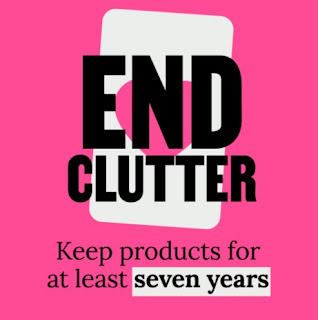The green tip for last week's service was from TakeTheJump's End Clutter suggestion - they highlight the climate and ecological impact of electronic items which are often replaced very frequently. The carbon emissions associated with the production of any electronic product are generally higher than those used in its entire lifetime eg only 13% of the Apple iPhone 11 Pro’s lifetime emissions are actually to do with its use; the other 86% are associated with its production, transport and end-of-life processing.
Electronic items should last 5-7 years so our target is not to replace them within that time. Obviously the same is true for lots of other products with potentially much longer lifecycles. According to Ethical Consumer, 8% of the world's carbon emissions come from steel production and each washing machine or fridge is responsible for 300-400 kg of carbon dioxide for its manufacture.
You can try taking portable electrical items to Reading Repair Cafe for advice on mending. Hiring, borrowing or buying secondhand are all obvious alternatives that save money too.
Some years ago we tried a 'church borrowing book' in which people listed items they owned that they were prepared to lend to anyone in the congregation who wanted - these ranged from DVD collections to a flat by the sea - but it didn't really work because people forgot to check in there to find what might be available. It can feel awkward to ask to borrow but that is surely a consequence of problems with our culture - individualism, prizing wealth etc. Yet being prepared to borrow helps the planet and makes whoever does the lending feel good at the same time. It's part of what it means to be a community, so we shouldn't feel embarrassed to put out requests on the church Facebook page if our neighbours cannot help. My family was certainly very grateful to Laura's for lending us suitcases for our holiday this year.









